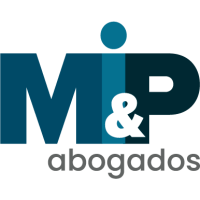The rule 2.7.1.8. of the Miscellaneous Tax Resolution (MTR) for 2021, as well as rule 2.7.1.9. of the Fifth Early Version of the Second Amendments Resolution of the aforementioned MTR (Fifth Version), basically establish the mandatory use of the Supplements that include tax information to the “Bill of Landing” that will be published on the Tax Administration Service’s website, which will be necessary to incorporate them into the Internet Digital Tax Receipts (e-invoices) related to the goods that are transfer by land, rail, sea, air, or river in order to be able to prove the transport of such goods.
Comments
The said rule 2.7.1.9. highlights that when the owners of the goods are the ones who transfer them in national territory by land, rail, sea, air, or river, they must issue the e-invoices of “transfer” type and incorporate the corresponding “Bill of Landing” Supplements to prove the transport of your goods.
On the contrary, when the transfer of the aforementioned goods is carried out by a taxpayer that render the cargo transport services by land, rail, sea, air, or river, he will be the one who must issue the e-invoices of “income” type, as well as “Bill of Landing” Supplements to prove the transport of such goods.
Likewise, all taxpayers that are related to the transfer of goods must issue the e-invoices along with the “Bill of Landing” Supplements of “transfer” type or of “income” type, depending on their participation in the transfer operation.
Finally, in order for the carrier to prove the lawful stay and/or tenure of the goods of foreign or domestic origin, he must have the corresponding e-invoices that include the “Bill of Landing” Supplements.
The obligations contained in rule 2.7.1.9. will enter into force on September 30, 2021, in accordance with the provisions set forth in the First Transitory article of the Fifth Version in connection with the Eleventh Transitory article of the First Amendments Resolution of the MTR for 2021.
The foregoing will imply that in connection with this new information (i.e. “Bill of Landing” Supplements) the taxpayers must:
- Adapt, understand, and quickly apply the Annex 20 of the MTR consisting of a very technical catalog under which e-invoices must be issued.
- Know in detail several information such as the kinds, types, quantities, routes, and destinations of the goods transferred in Mexico, as well as the type and operation of the land, rail, sea, air, or river transport in question.
- Know specific data such as the year of the unit, railroad, aircraft or vessel, its registration or plate, its policy and name of the insurer, among others.
However, on a day-to-day basis that involves the transfer of goods within the Mexican territory, the land, rail, sea, air, or river transport used, on many occasions is not carried out in a single-route trip and with a single unit, railroad, aircraft, or vessel, on the contrary, they are executed on several trips and routes in which, even two or more means of transport of different nature intervene (e.g. land, rail, and air).
Recommendations
Incorporated the “Bill of Landing” Supplements will cause a series of problems and complexities in the transportation of goods, both for the owners and for the carriers and, even important tax contingencies, resulting essential to know properly the e-invoices requirements, redefine and update compliance programs related to management and control of goods, as well as redesign or create detailed databases or data systems.
If you have any questions regarding the foregoing, please do not hesitate to contact us.
Mexico City, July 13, 2021

